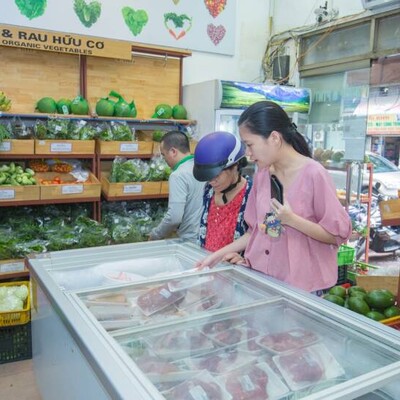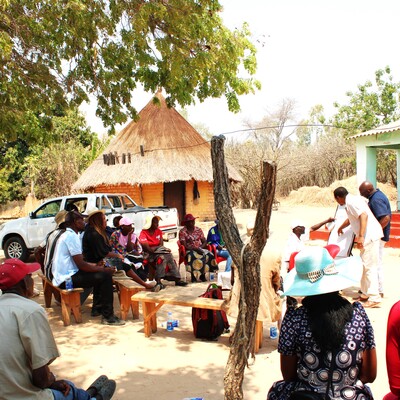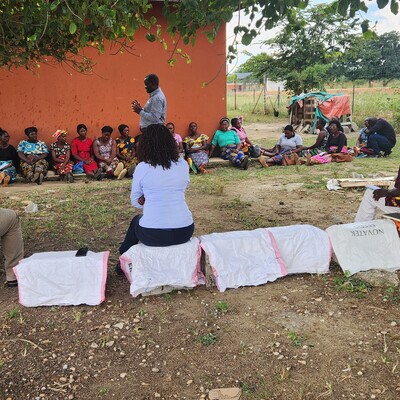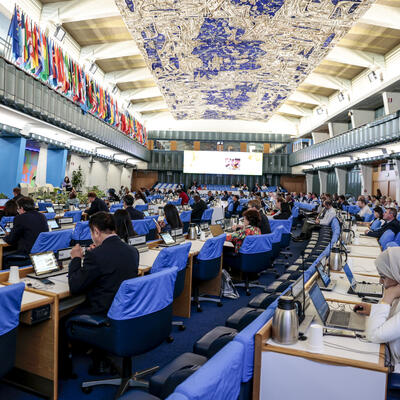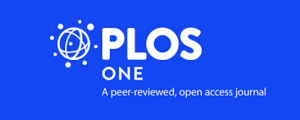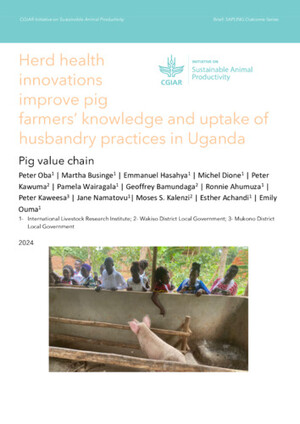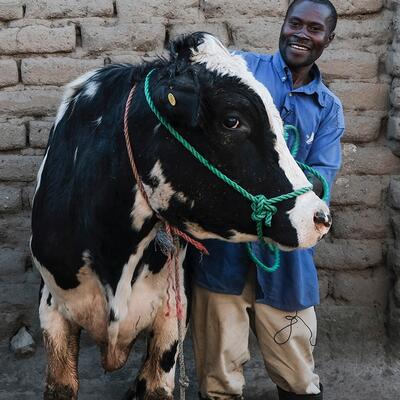
Zimbabwe adoption and scaling up of livestock systems project rolls out platforms to improve animal management practices
Zimbabwean partners of the Livestock Production Systems (LIPS-Zim) project have adopted innovation and communication platforms (ICPs) and innovation platforms (IPs) as key approaches of increasing adoption of livestock innovations by farmers and communities in the semi-arid regions of the country.
'The ICPs and IPs do this by helping to bridge the gap between researchers and end users/farmers,’ said George Mapuvire, executive director of BIO-HUB Trust, at the LIPS-Zim third-party integration workshop held in Gweru, Zimbabwe, 13-14 September 2022.
ICPs bring farmers/communities, private sector, government technicians, NGOs, research institutions and universities and other stakeholders to share experiences, give feedback, and find solutions to their challenges. The LIPS-Zim project ICPs will link evidence-based research and community transformation through co-identification, co-creation, co-planning, co-implementing, co-monitoring and evaluation, and co-documentation of research on climate-smart feeding practices, adaptive breeds, and animal management practices. Established at village and ward levels the ICPs will promote a bottom up approach that feeds input and feed to the IPs at the district level for policy development. ‘ICPs can be used as entry points or vehicles into districts or communities by other development agencies, private sector institutions and researchers,’’ said Mapuvire.
LIPS- Zim has contracted nine institutions including NGOs, and research and academic institutions, to fast-track this work. Discussions at the two-day workshop touched on planning of activities for the remainder of 2022 and 2023, aligning activities with the newly contracted third parties, identifying platforms for engaging with communities to increase adoption of innovations, reporting and communication.
Sikhalazo Dube, the project coordinator and the International Livestock Research Institute (ILRI) regional representative for Southern Africa, called on project partners to consolidate their achievements and successes since the start of the project in 2020.
‘Now is the time to make up for the lost time during the COVID-19 pandemic,’ said Dube urging partners to focus on bringing project activities to a successful conclusion in the next 12 months.
Representatives from key project partners including the BIO-HUB Trust, Catholic Relief Services, National University of Science and Technology, Lupane State University, Chinhoyi University of Technology, Bindura University of Science Education, and Manicaland State University of Applied Sciences, presented ongoing project activities.
These included science and technology innovations, community engagement/mobilization, working with ICPs, community knowledge documentation, animal production systems improvements, and technology adoption among smallholder farmers, private sector engagement, agro-industrial hubs, dairy value chains, fodder production, and farmer-based research.
Later, smaller groups of participants discussed different thematic areas including stakeholder/audience mapping. They then reported back in plenary. Project partners agreed that in the next 12 months, the project would focus on how to get the ‘best-bet’ technologies into the hands of more smallholder farmers.
‘In the next year, we want to work more with partners to get our technologies to farmers so that they are better able to adapt to changing environments resulting from climate change and socio-economic conditions,’ said Daud Ndlovu of the University of Zimbabwe.
A key recommendation of the meeting was that the project should start the scaling up of key findings of lessons learned.
Andrew Chamisa, the government focal person in the project, who is also a member of the project’s steering committee, thanked the participants and the project donor–the EU, for their ongoing support to the LIPS-Zim project, which is lifting smallholder farm families out of hunger and poverty.
The workshop was attended by more than 30 scientists from ILRI–the project lead implementer, Bindura University of Science Education, National University of Science and Technology, Manicaland State University, Lupane State University, Chinhoyi University of Technology, the Faculty of Veterinary Sciences at the University of Zimbabwe, BIO-HUB-Trust and Catholic Relief Services.
Read more about LIPS-Zim: https://lips-zim.org/: https://hdl.handle.net/10568/119881







